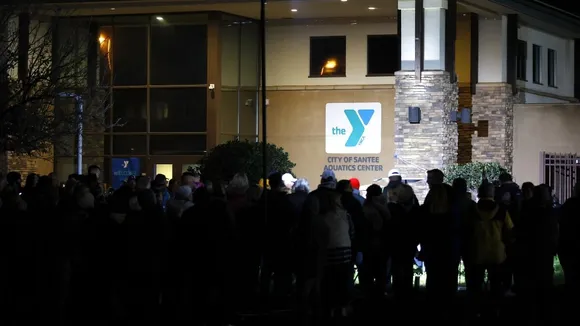

In a recent turn of events, the Santee YMCA has decided to withdraw its request for city funding and implement a no-nudity policy in shared spaces amidst ongoing controversies over its transgender-inclusive locker room policy. This development comes after a heated city council meeting where Mayor John Minto announced plans to redesign the facility’s locker rooms to prevent individuals from changing clothes in front of others, addressing community concerns while adhering to California’s civil rights laws.
Community Backlash and Policy Response
The controversy ignited when a teenager expressed discomfort upon encountering a transgender woman in the YMCA’s locker room, leading to widespread protests and threats against the facility. In response, the YMCA of San Diego County, which oversees the Santee location among others, has decided to pilot a new locker room policy that includes a no public nudity expectation in common areas. This decision aims to balance the rights of transgender individuals with community concerns, amidst a backdrop of protests, some of which involved extremist groups like the Proud Boys.
Funding and Future Implications
Additionally, the YMCA withdrew its request for a Community Development Block Grant, initially intended to support low-income youth programs, due to timing issues. This move comes amid speculation that city leaders might have rejected the funding request due to public opposition. The YMCA remains committed to finding alternative funding sources for these programs, highlighting the organization’s dedication to serving all community members regardless of the current controversy.
Legal and Social Considerations
The debate in Santee touches on broader issues of transgender rights, religious beliefs, and community safety. California law requires businesses to provide full and equal accommodations to everyone, irrespective of gender identity, putting the YMCA in a challenging position as it navigates legal obligations and community sentiment. While some residents express fears of exploitation, others advocate for acceptance and inclusion, illustrating the complex dynamics at play. This incident underscores the ongoing societal debate around gender identity and rights, with potential implications for how similar situations are handled in the future.
As Santee grapples with these contentious issues, the YMCA’s policy adjustments and funding decisions mark a pivotal moment in the community’s engagement with questions of inclusion, privacy, and public funding. The outcome of this debate may influence not only the immediate community but also set precedents for how similar situations are addressed elsewhere, highlighting the delicate balance between individual rights and community concerns in an increasingly polarized society.



